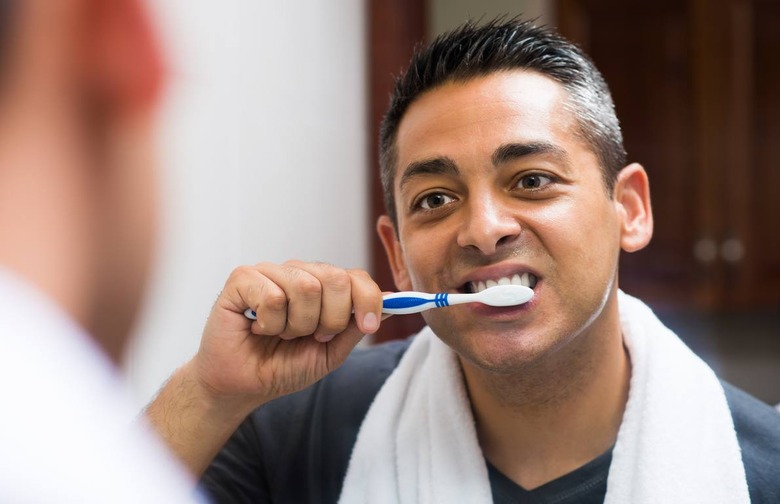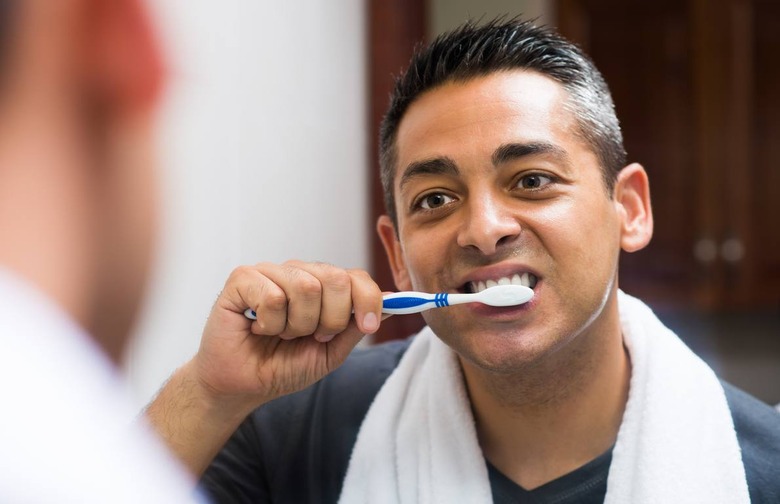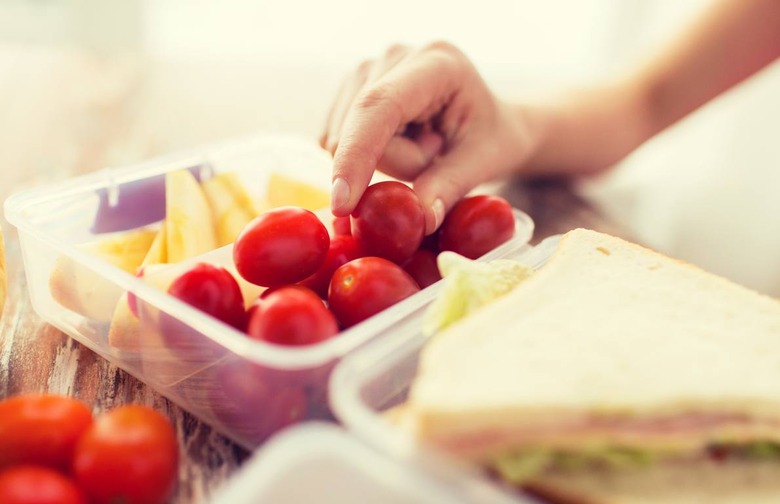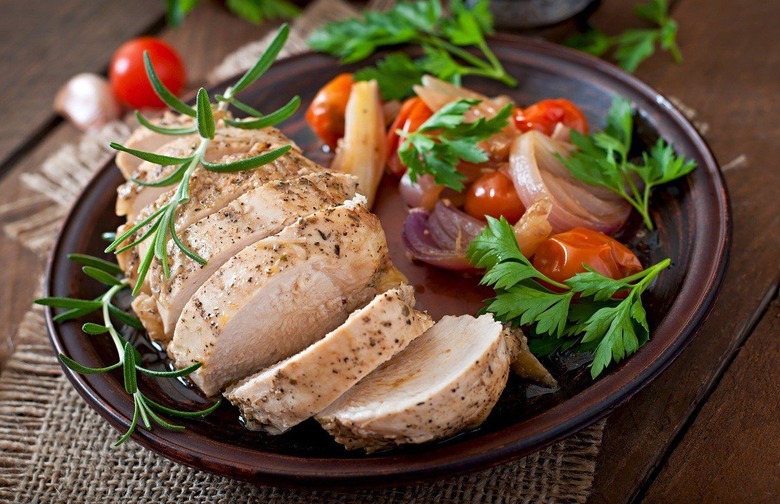The 15 Top Weight Loss Tips Of 2016 Slideshow
Brush Your Teeth After Eating
Dentists don't recommend that you brush your teeth immediately after a meal (it can wear away tooth enamel), but brushing 30 minutes after dinner may prevent late-night snacking. The minty flavor that coats the mouth after brushing makes the idea of eating more off-putting.
Don’t Make Big Dietary Changes
It's not wise to go adopt a dramatic diet renovation. Instead, a more successful approach is to integrate small changes into your eating regimen such as eliminating sugary beverages, changing breakfast cereals, or even using whole-grain breads. On their own, these alterations might appear minimal, but when added up they can make a serious impact.
Eat Foods With High Water Contents
Water offers a number of benefits: It balances body fluids, helps control calories, and energizes muscles, but downing glass after glass can get monotonous. Therefore, in order to receive the satiating benefits of water, eat fruits and vegetables with high water contents such as apples, kiwis, celery, and cucumbers.
Follow the “Half-Plate” Rule
The "half-plate" rule — filling up half of the dinner plate with fruits and vegetables — is a simple and more effective weight loss strategy than tracking calorie counts and analyzing nutrition labels because it's not restrictive. Fortunately, following this strategy doesn't have to be a burden; there are tons of satisfying and delicious ways to cook veggies.
Have Eggs for Breakfast
A breakfast of eggs is a secret to weight loss. Eggs are relatively low in calories and high in protein, and they contain a variety of essential nutrients. An egg-based breakfast also reduces the risk of turning to other less healthful breakfast options like bagels, muffins, or sugary cereals.
Incorporate the Color Blue Into Your Meals
This one might have you scratching your head, but the color blue serves as an appetite suppressant (hence why very few fast-food restaurants are decked out in blue). Try color coding your dining room with blue plates and tablecloths, and make sure to avoid red, yellow, and orange, because these colors stimulate appetite.
Keep a Food Diary
A food diary tracks all the food eaten during the day and is a helpful visual representation of diet. Often, people don't realize how much they're eating, or at what time of the day they're most likely to fall victim to a snack binge. People often reconsider eating especially heinous junk food if they're forced to write it down.
Reorganize the Kitchen
The phrase "out of sight, out of mind" is especially applicable when it comes to losing weight. People are more likely to eat snack foods when they're left on the table or kitchen counter, so alleviate the temptation by storing chips, cookies, and other snacks in the cupboard.
Sleep Longer on Weeknights
You'll be perkier in the morning after a good night's sleep, but that extra 30 minutes to an hour of slumber might also keep your weight down. A recent scientific review noted that calorie intake increased as much as 20 percent when people got less sleep, and sleep-deprived individuals were more drawn to foods rich in carbohydrates and fats.
Slow Down Chewing
Mom always says "chew your food," and she's right. Chewing slowly offers a number of benefits from easier digestion to a stronger jaw, but it also helps you eat less. It takes the brain around 20 minutes to recognize the stomach is full, and if you spend an extra three to five minutes chewing, that might give the brain enough time to prevent you from going in for another helping.
Sniff Some Produce
It's hard to believe, but smelling fragrant foods like bananas, apples, fennel, or peppermint may actually trick to the mind into thinking you're actually eating them. A researcher studied 3,000 volunteers and found that the more often people sniffed food, the less hungry they became.
Start Each Meal With a Glass of Water
Drinking a glass of water before each meal has been a dietary mantra for years, but a recent study provides evidence reaffirming this widely held belief. For three months, 84 obese participants drank two cups of water before eating their daily meals and lost an average of nine pounds each compared to the control group who lost less than two pounds each.
Upsize Breakfast and Downsize Dinner
New research shows that losing weight isn't about how many calories you eat, but rather when you eat them. The study concluded that eating a larger percentage of calories before lunch time is more conducive to dropping pounds as opposed to eating those calories in the evening.
Use Smaller Plates and Silverware
A key to weight loss is simply eating less, but managing portion sizes is difficult when faced with a dinner table full of enticing foods. Using smaller plates and utensils is an effective strategy in limiting how much food is consumed. An experiment out of Cornell University showed that when diners switched from 12-inch plates to 10-inch plates that there was a 22 percent reduction in calories consumed.
Watch Less Television
We've all fallen victim to mindless munching in front of the television, but a study showed that more television watched resulted in more frequent eating and an overall higher food consumption.















